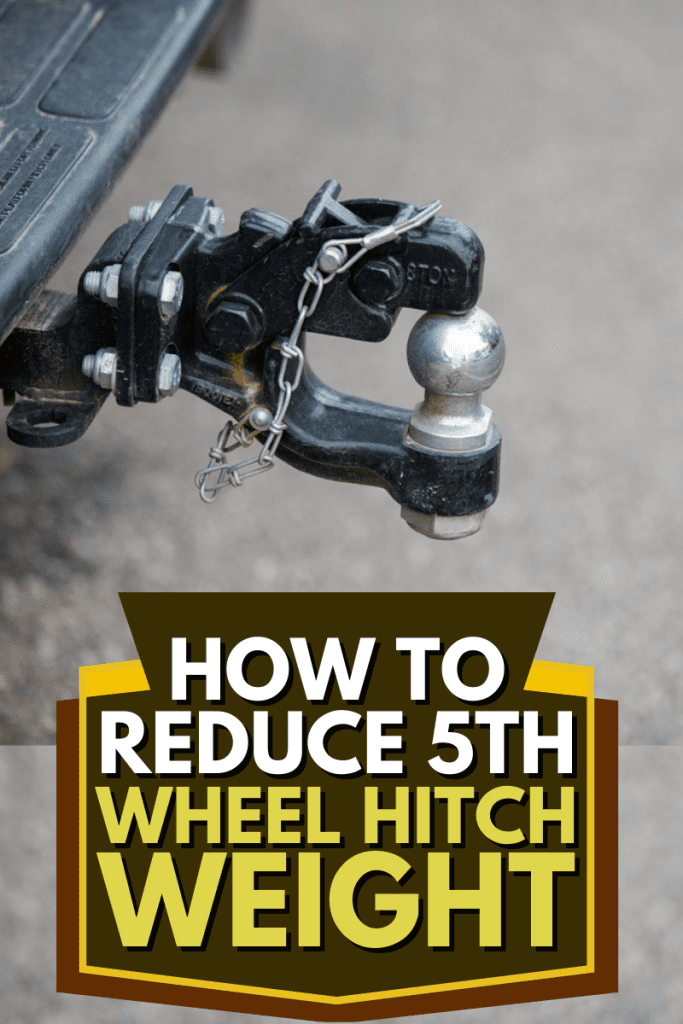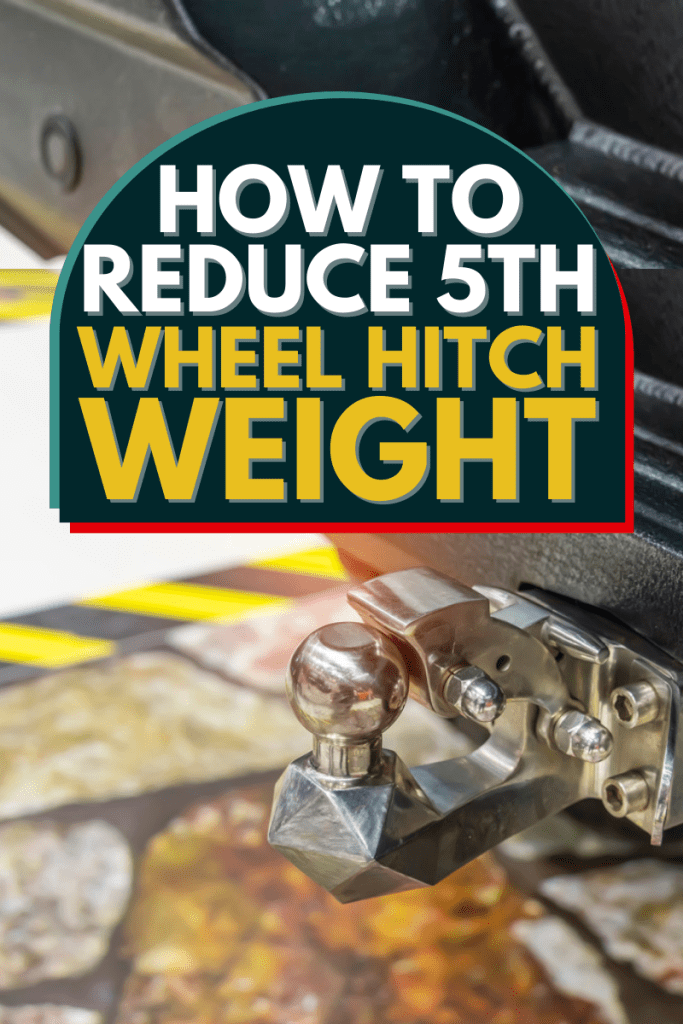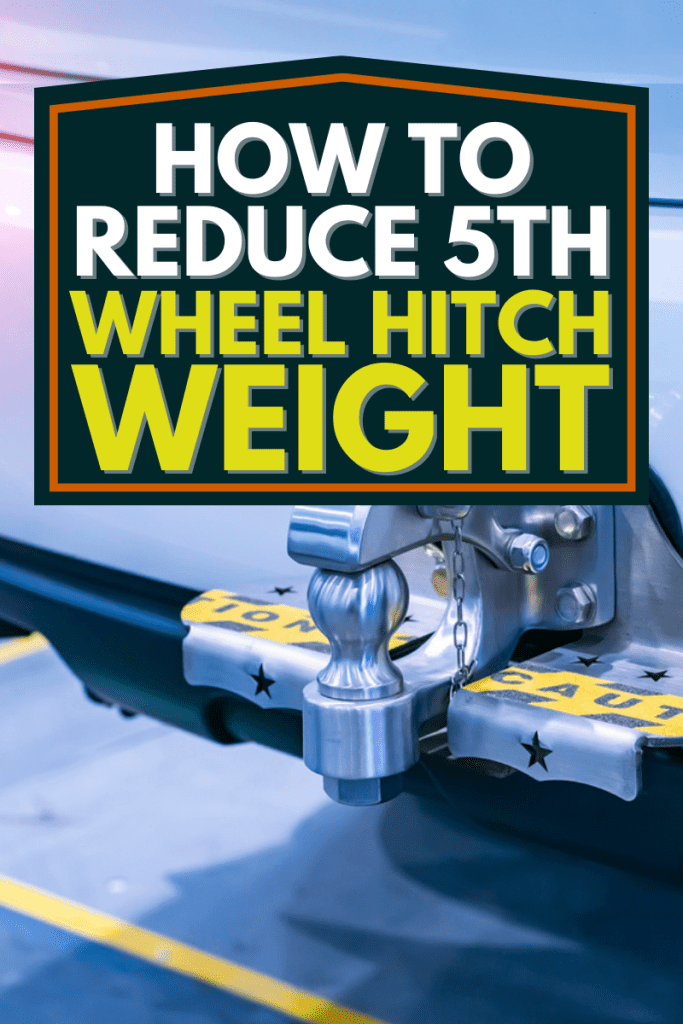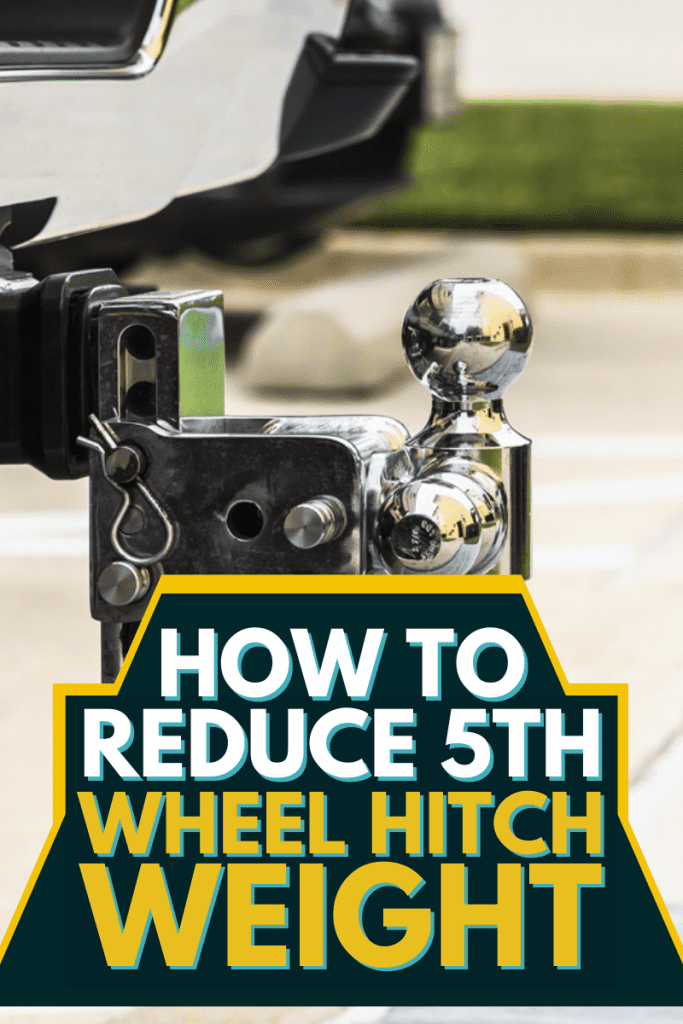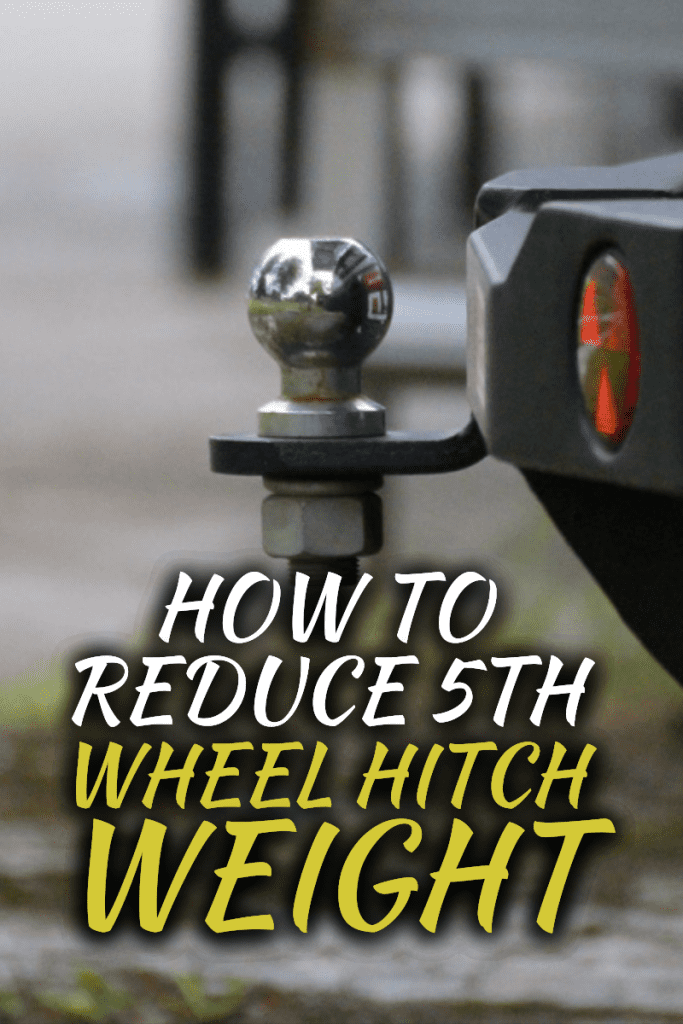You can apply a certain amount of weight to your 5th wheel hitch. If you believe your hitch has too much weight and are wondering how to reduce it, we can help you.
We researched the method for decreasing this weight from multiple professional sources so that you'll know what to do.
You can reduce the weight on the 5th wheel hitch by redistributing the weight of the items you are hauling in your 5th wheel.
Put the heavier items in the back of the 5th wheel or trailer. This will put more weight on the axles of the vehicle you are hauling instead of on the 5th wheel hitch.
Now that we know that you need to redistribute the weight in your trailer to reduce the hitch weight, we'll look at why this weight distribution is essential.
You might be curious about what would happen if you exceed tongue weight or the consequences of exceeding payload capacity. For the answers to these questions and more, read ahead!
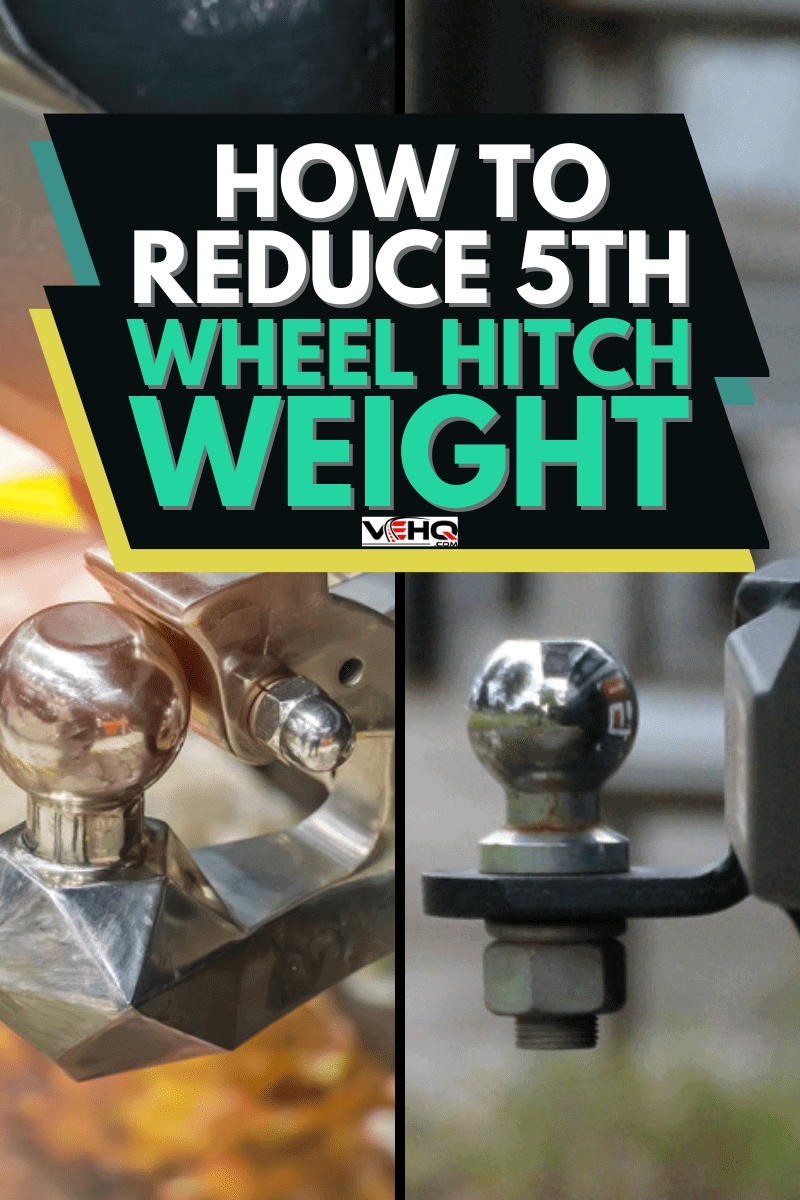
Why Proper Weight On A 5th Wheel Hitch Matters
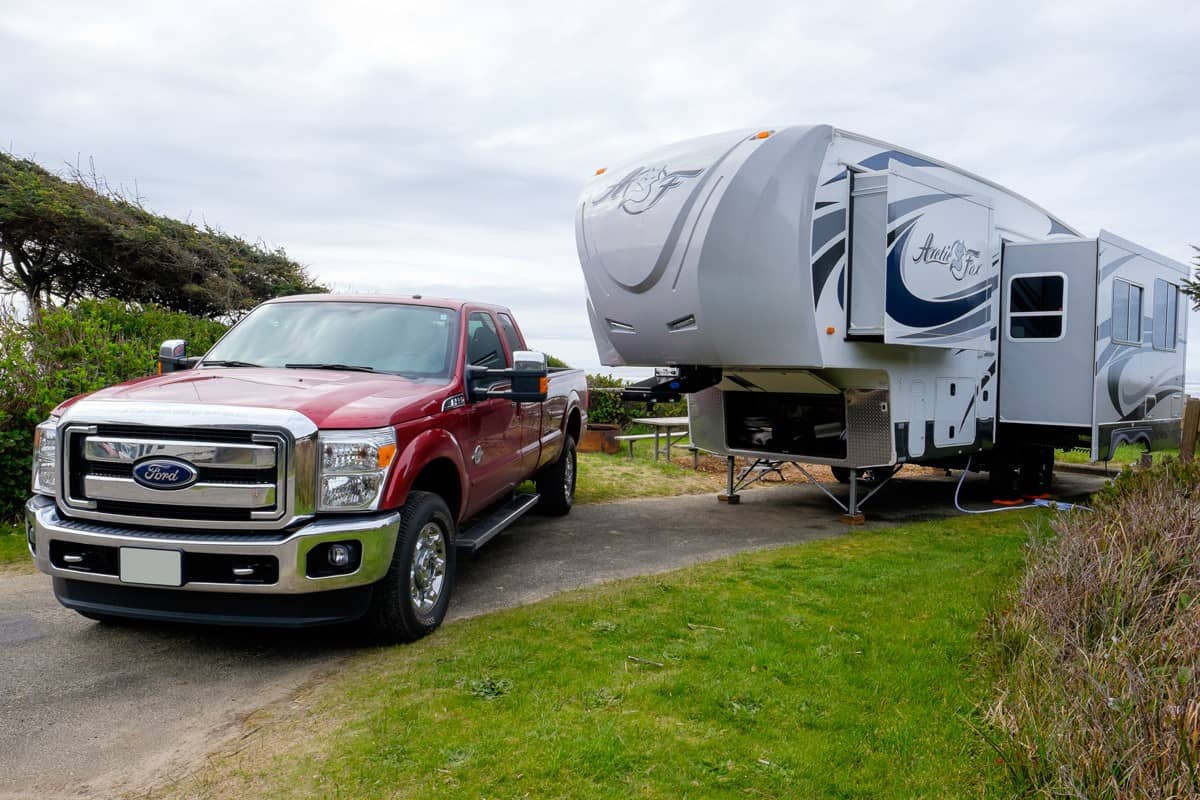
For a 5th wheel to be safely towed behind a truck or SUV, there are certain weight limitations that you must be aware of. Should you exceed weight capacities, you risk damaging your vehicle.
But if you underdo it, you risk losing control of your trailer.
Making sure that you have the right amount of weight on your trailer tongue is vital. This amount should be between 10 and 15 percent of the total weight of the weighted trailer.
For example: Let's say that you have a 5th wheel that weighs 3,000 pounds. On the 5th wheel, you have an additional 500 pounds of cargo (luggage, bedding, groceries, etc.). The total weight of the weighted trailer is 3,500 pounds.
Using the 10 to 15 percent guideline means you should have at least 350 pounds but no more than 525 pounds on your trailer hitch.
Does Hitch Weight Caunt As Payload?
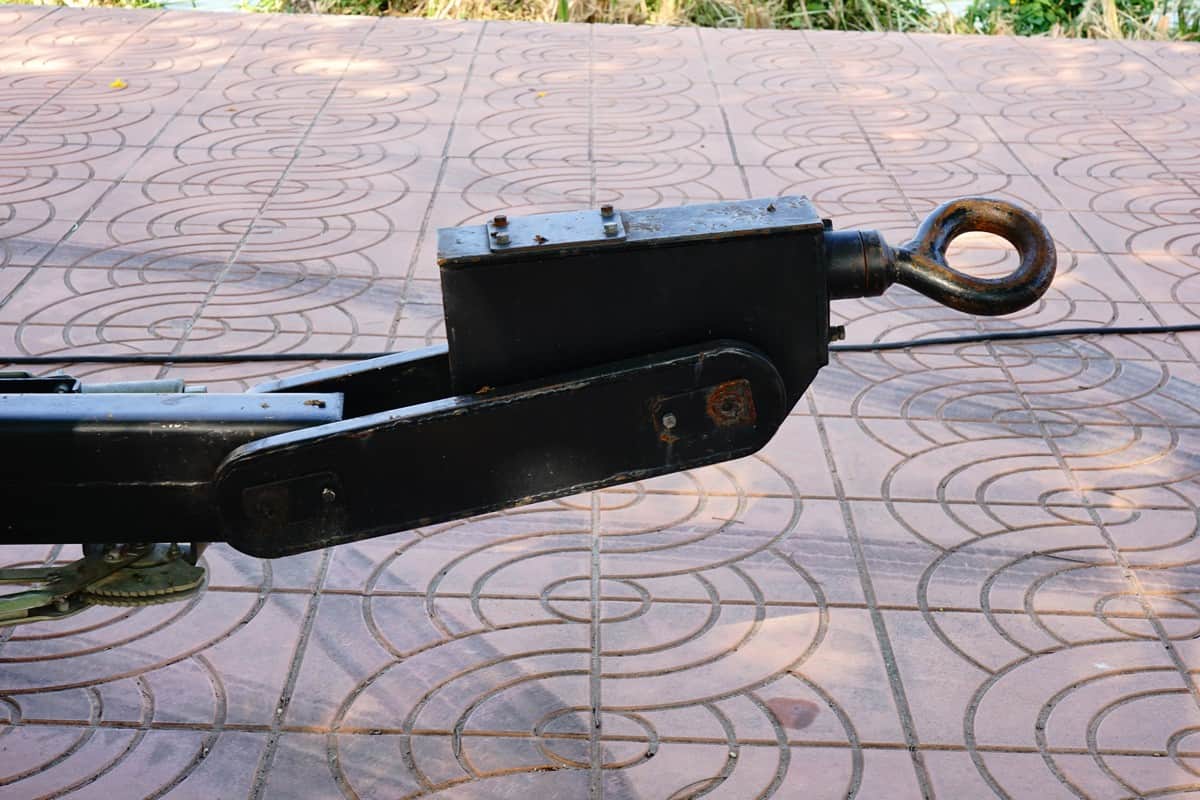
We know from our findings posted earlier that the hitch weight needs to be between 10 and 15 percent of the total weight of the trailer and its contents.
This weight will greatly vary, depending on what you are hauling. It could be a couple of hundred pounds, or it could be over a thousand.
No matter how much weight is on your trailer hitch, you must count it against your tow vehicle's payload. Payload refers to the weight on board the car, whether cargo or people.
The hitch weight exerts the same downward pressure as a body of the same weight, so it must be subtracted from the remaining payload the vehicle can carry.
In this post, we'll discuss in more detail what happens if you exceed your vehicle's payload capacity. For now, know that you must include the hitch weight when calculating the total payload of the tow vehicle.
Can Weight Distribution Hitch Increase Payload Capacity?
Also known as a load equalizing hitch, a weight distribution hitch can help you in several ways.
Though it doesn't increase the payload capacity of your tow vehicle or trailer, it makes towing heavier loads easier, safer, and more efficient.
When connected, the weight distribution hitch will use a system of tension springs and bars to uniformly distribute the trailer's weight from on the plane of connectivity between the trailer and the tow vehicle.
There are several benefits to having a weight distribution hitch. They include:
Decreased Chances Of Trailer Sway
Too little weight on a trailer hitch will result in trailer sway. With a weight distribution hitch, your trailer hitch will always have the proper amount of weight on it.
This will help keep your trailer in line.
Increase In A Trailer's Towing Capacity
Since your trailer will have a better balance of its weight on the tow vehicle's tongue, you can get a bit closer to the actual payload capacity of your trailer.
Though this doesn't technically increase the factory-recommended payload for the trailer, it frees up some of it that would otherwise not be placed on the tow vehicle's tongue.
Better Control
If your trailer isn't swaying, you will have much better control over it and the tow vehicle. Turns will be much easier as well.
Less Overall Wear And Tear
Overloading the hitch will create more wear and tear on your tow vehicle. This will impact the suspension system, rear axle, and rear tires.

What Happens If You Exceed Tongue Weight?
As we mentioned earlier in this post, you do not want to have more than 15 percent of the weight of a loaded trailer on the tongue.
If the tongue is overloaded, it will put more downward pressure on the rear axle and tires. This will not only cause premature wear but will also make the vehicle harder to control.
But recall that tongue weight needs to be subtracted from your tow vehicle's payload capacity. Make sure you do not exceed your vehicle's weight limits before you set out on the road.
What Happens If You Exceed Payload Capacity?
There is sometimes a bit of confusion about what payload capacity means. It refers to the weight a vehicle can carry on board.
This includes not only all the cargo you put into it but also the weight of all riders on board. In addition, the payload must consist of any weight that is placed on the vehicle's hitch.
If you exceed the recommended payload capacity, you risk doing great damage to your vehicle.
This will force the engine to work harder, making it more challenging to cool. Too much heat is the enemy of the transmission and engine, making these vital parts wear out faster or fail altogether.
You will also risk damaging the suspension system, axles, and tires. The added weight will strain these parts greatly, leading to irreversible damage.
You also will find that the vehicle will be much more difficult to control. It will be harder to steer, making turning more complex and significantly impacting braking.

What Happens If Tongue Weight Is Too Light?
As we mentioned earlier in this post, the tongue weight should be between 10 and 15 percent of the importance of the loaded trailer.
If the loaded trailer weighs 2,000 pounds, you should ideally have between 200 and 300 pounds of weight on the tongue.
If you do not have enough weight on the tongue, you risk the trailer swaying during travel. This is dangerous for several reasons. A swaying trailer makes your vehicle harder to control.
It also increases the risk of the trailer detaching.
The last thing you will want your trailer to do is to break away from your hitch on the highway. Because of the great damage, this can create, be sure to have the proper weight on your trailer hitch.
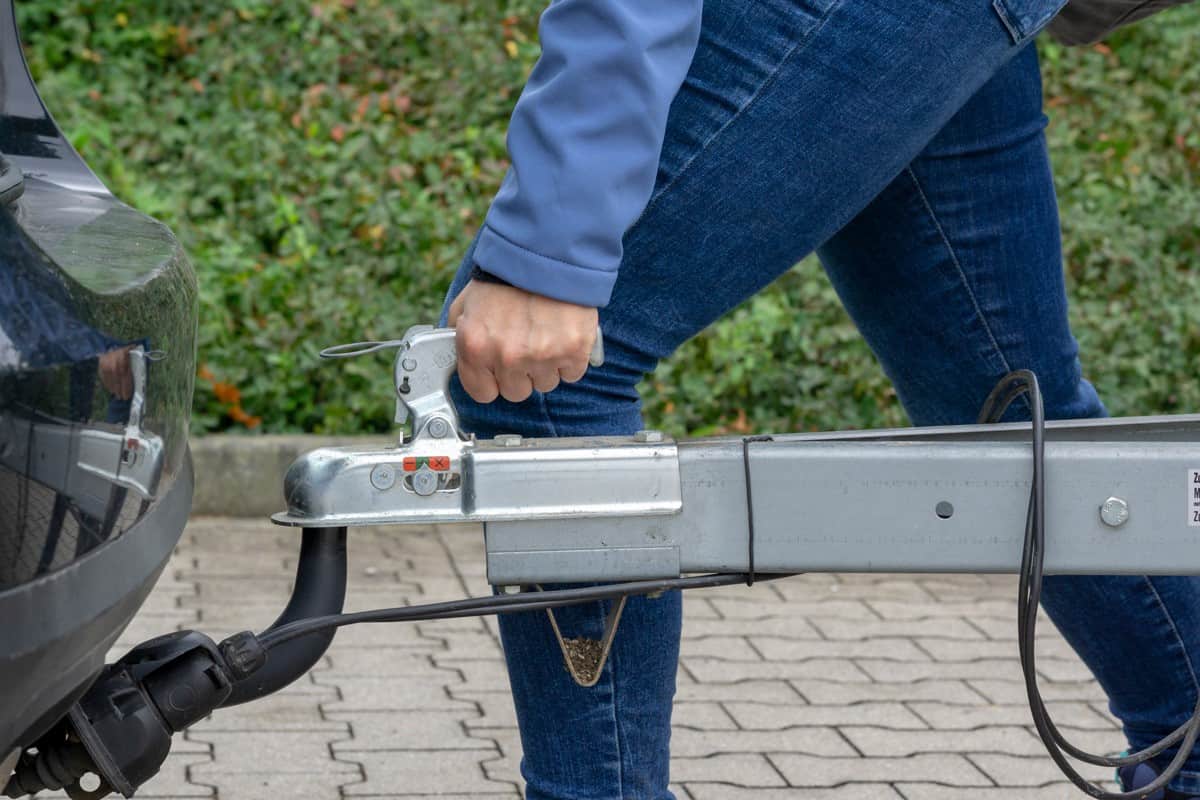
Conclusion
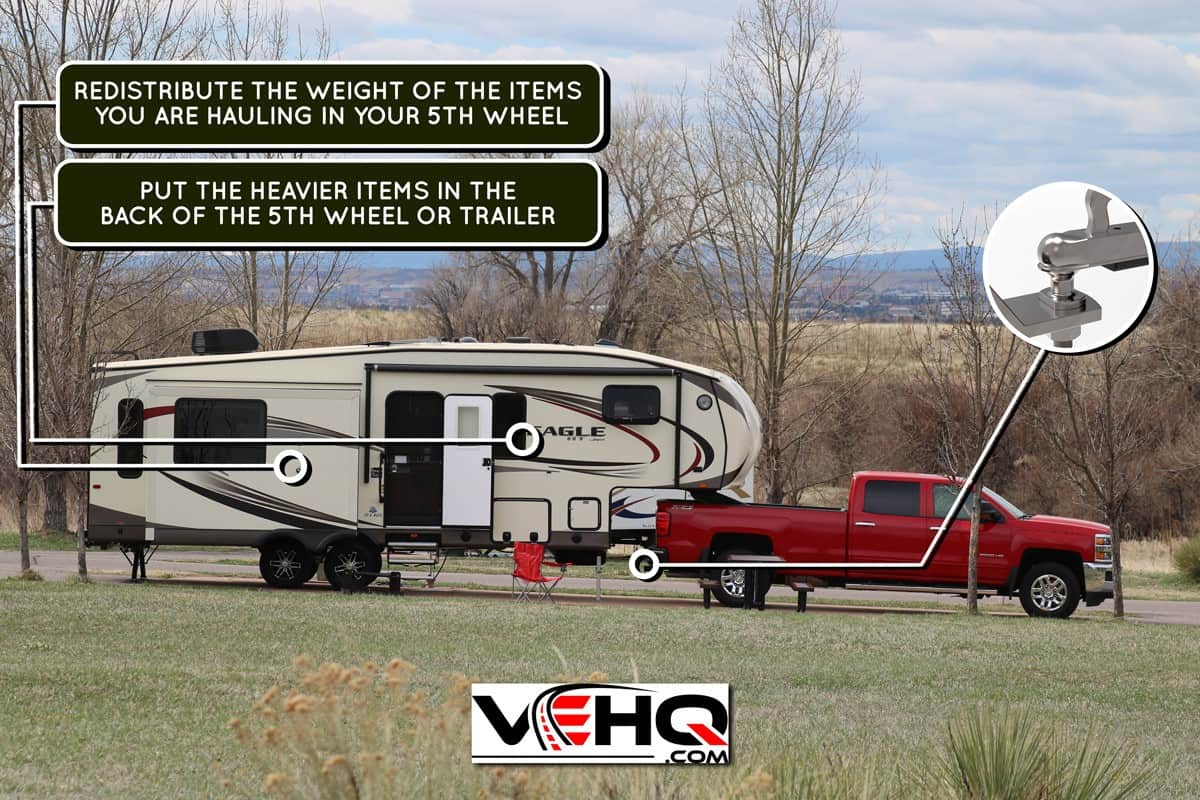
Reducing the weight on your 5th wheel hitch is as easy as redistributing the weight you are carrying on board the vehicle you are towing.
As important as it is not to put overload the hitch, you must not underload it either.
Become aware of the weight minimums and maximums when it comes to towing so you can avoid damage to your vehicles. Drive safe!
We hope this 5th wheel hitch weight post answered all your questions. To read more, check out these helpful related posts below!

